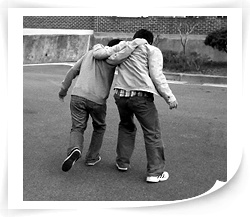The events of the Summer
This chapter tells us how the value of time could be different from one another. As for me, time is one of the things that I value most, because planning and using the time wisely would most likely to help you reach the goals that you have set. For instance, my goal is attend university in United States could be achieved only if I manage myself wisely by restricting myself of playing games, watching movies, and other hobbies that I enjoy and to spend most of my time studying. Like this, time or the future provided motives and invigorates our lives due to the hope that we could succeed. However, it was different for the prisoners in the concentration camps. For them, time was simply another part of their life that was dominated and controlled by the German soldiers. The German soldiers controlled every moves that prisoners made, thus, they stripped prisoners of hope, motivation, and plans that they had for their futures. Without the purpose of life, time simply became a “set schedule” that told the prisoners of when to eat, sleep, and work. I guess this futile and vague feeling coming from fact that none of them could set goals and use time to reach that goal took away all the energy they had.
This chapter also discusses how Lorenzo symbolized hope within Primo Levi’s mind. Lorenzo constantly portrayed his “goodness” even in physically unbearable conditions in the concentration camp, and his constant goodness allowed the fellow prisoners that “there still existed a just world outside our own, something and someone still pure and whole, not corrupt, not savage… and worth surviving”. The quote suggests how strong the influence of Lorenzo was to the fellow prisoners. The conditions in the camps were so bad that it was hard for them to keep pure and whole, and as the harsh environment continually tortured them, they would eventually lose what it means to be pure or not savage, rather they only concentrate on how to survive. If this kind of thinking continues, prisoners would soon lose hope and purpose in living. However, fellow prisoner like Lorenzo portrayed strong will to remain pure and do something that would benefit neighbors gave them hope that if they go out of this concentration camp, they could see the “goodness” of people. Thus, his “goodness” split the hope and motivated them to live to see the “goodness” of the human nature.
Sunday, March 11, 2007
Subscribe to:
Post Comments (Atom)

No comments:
Post a Comment